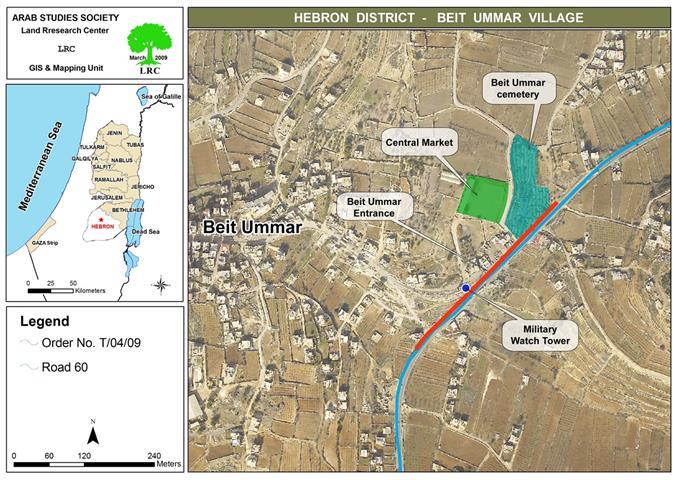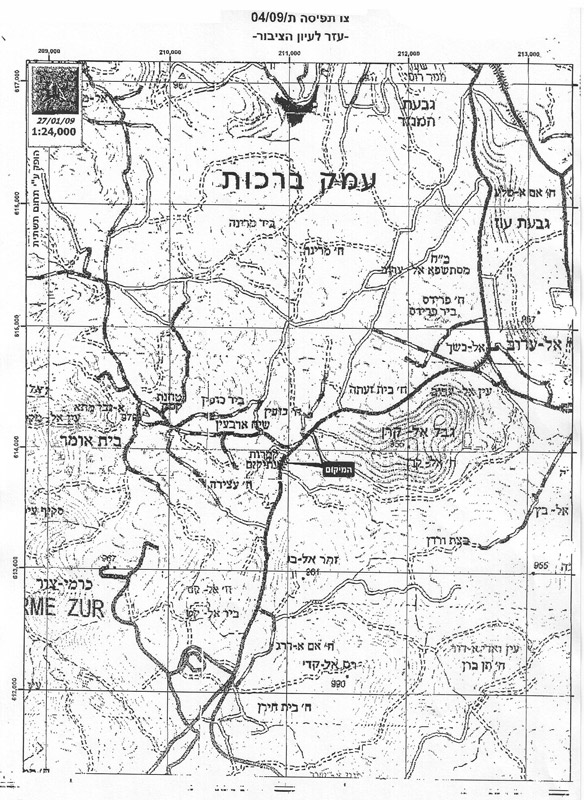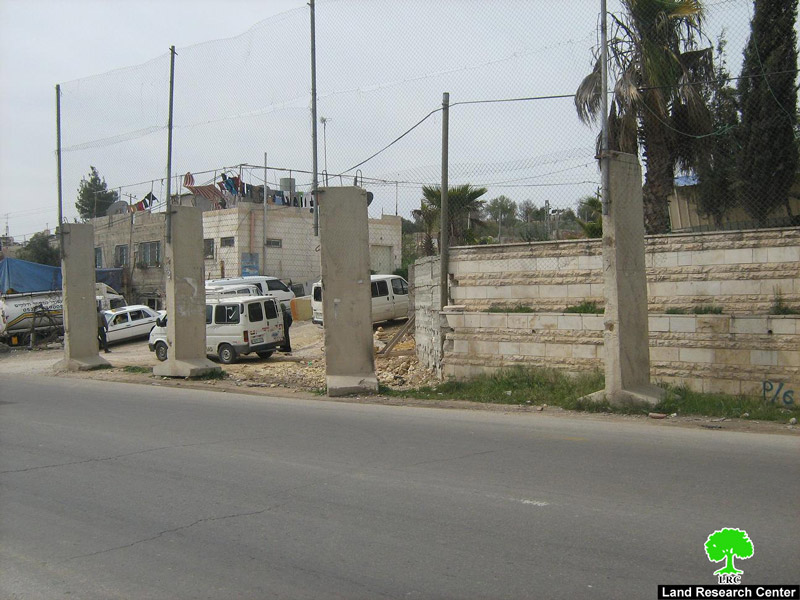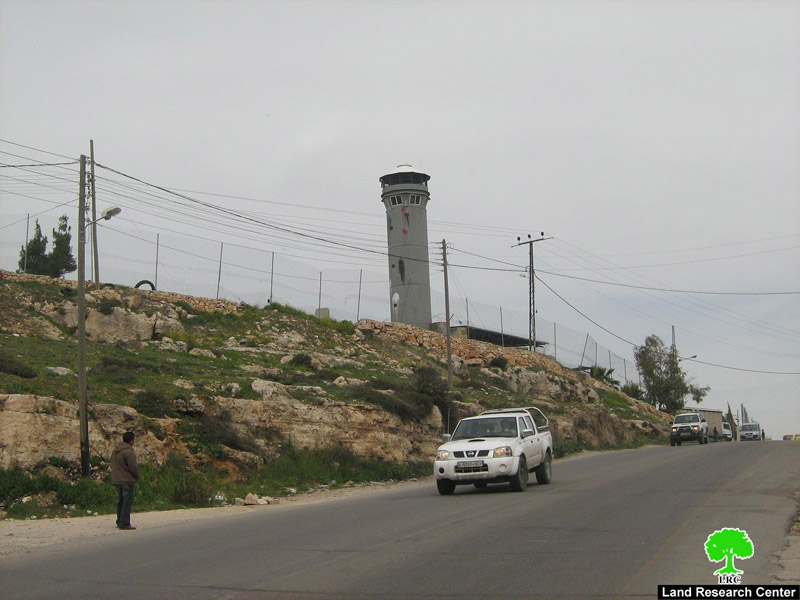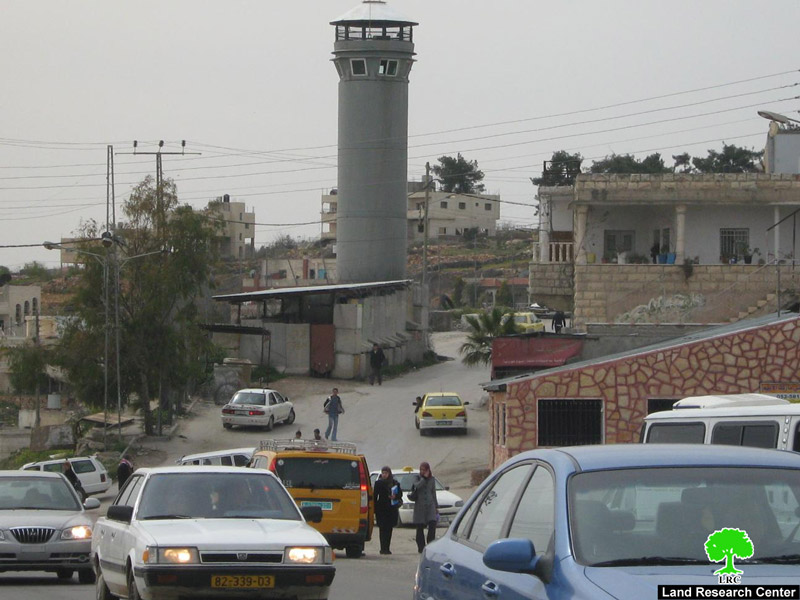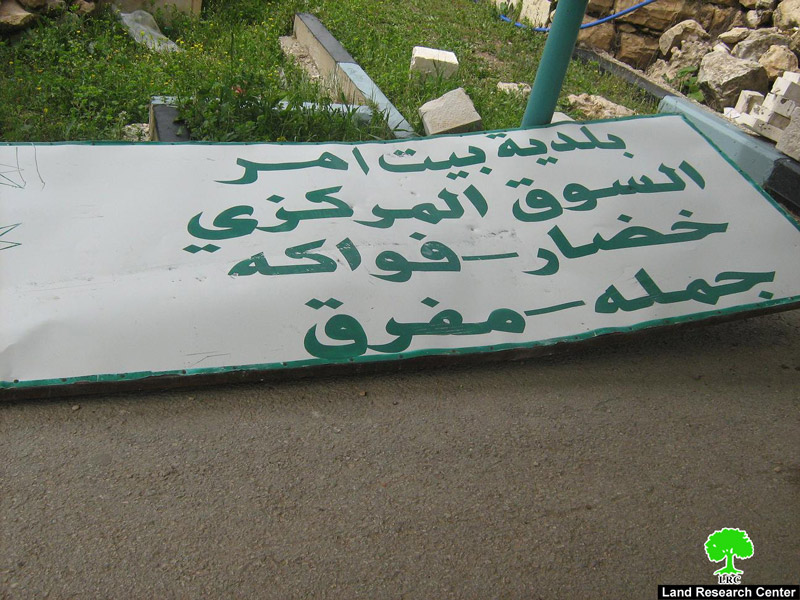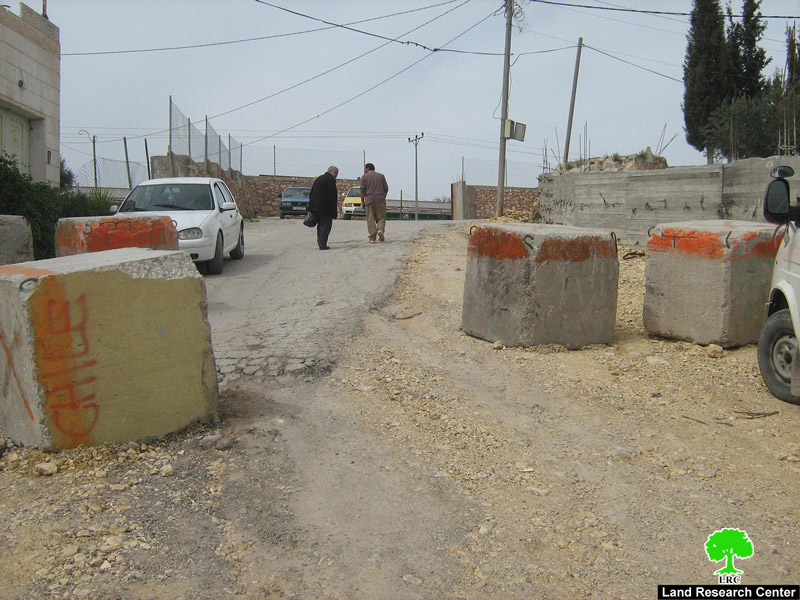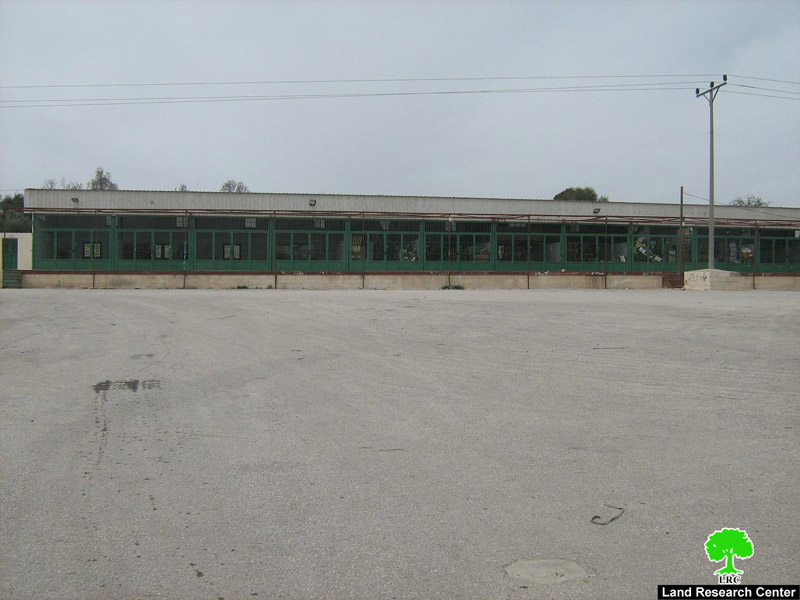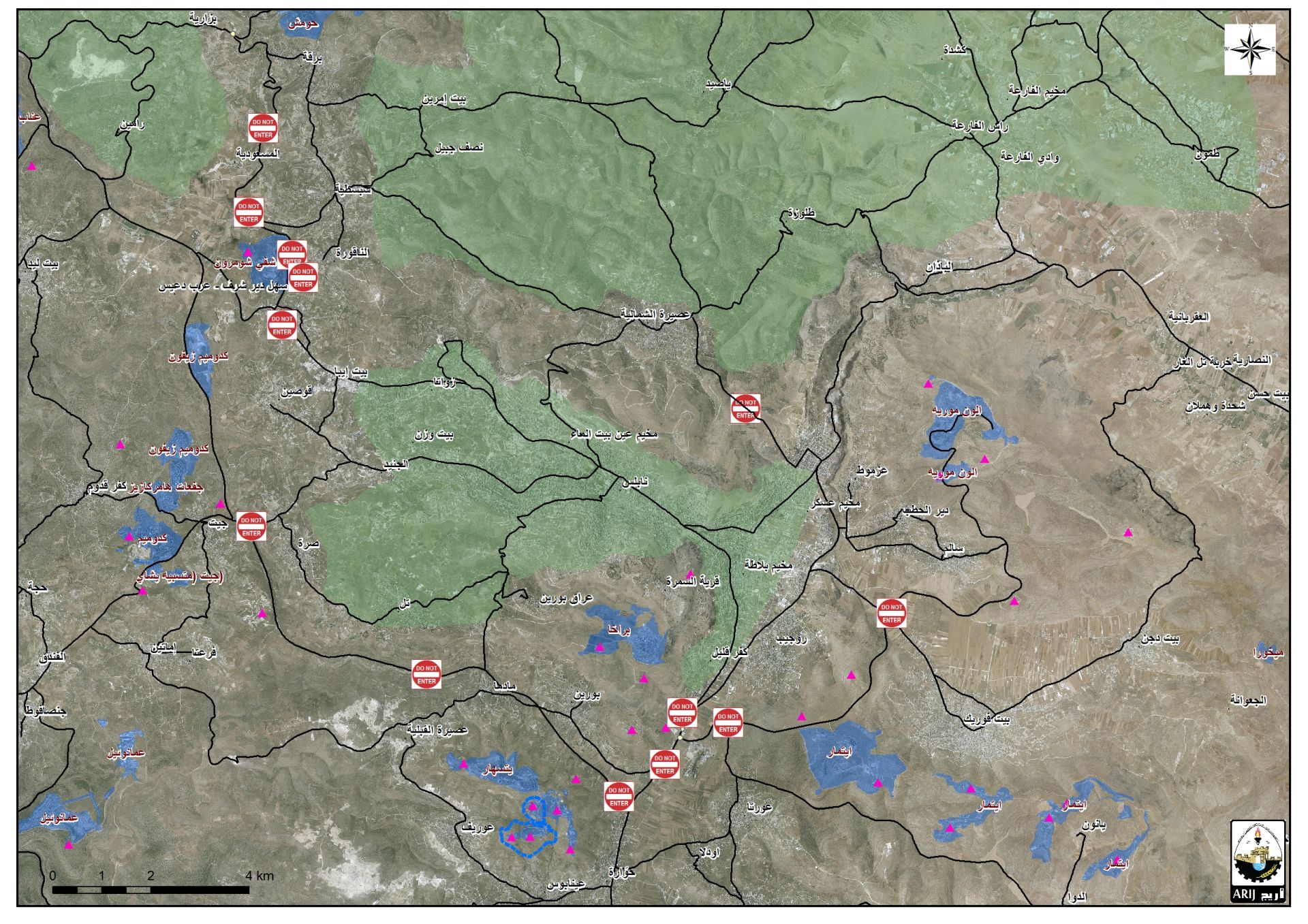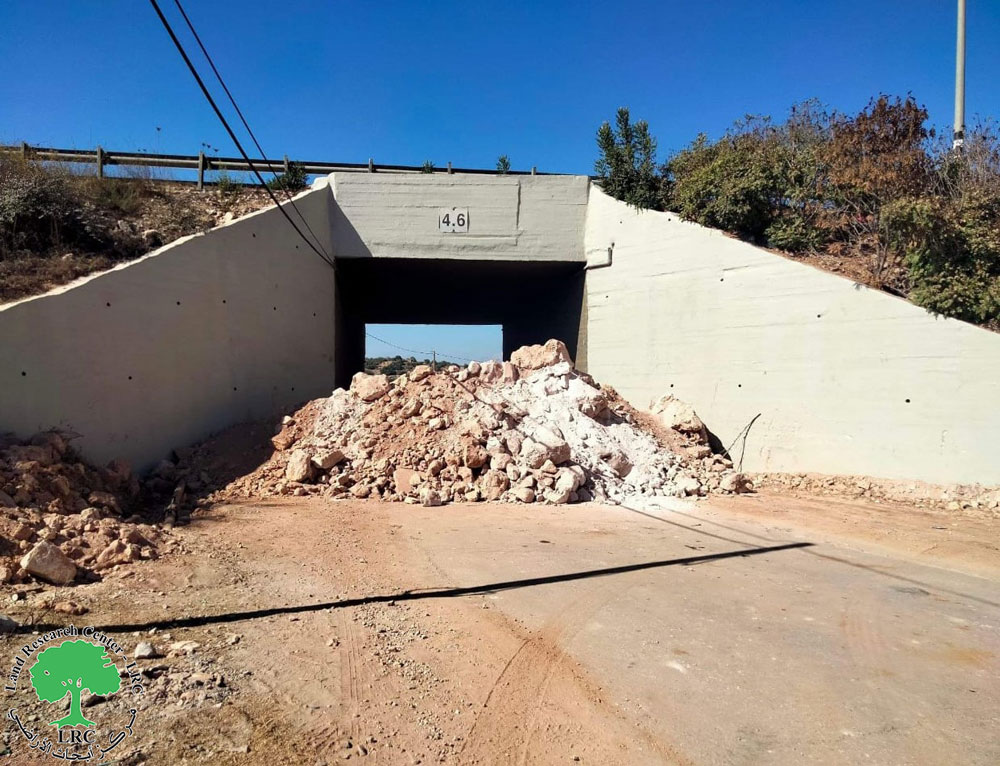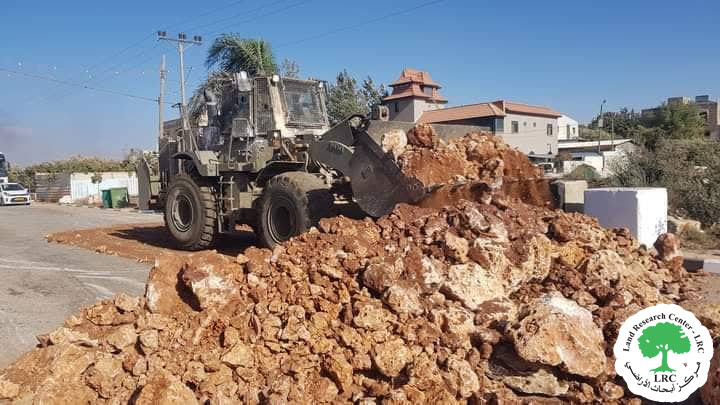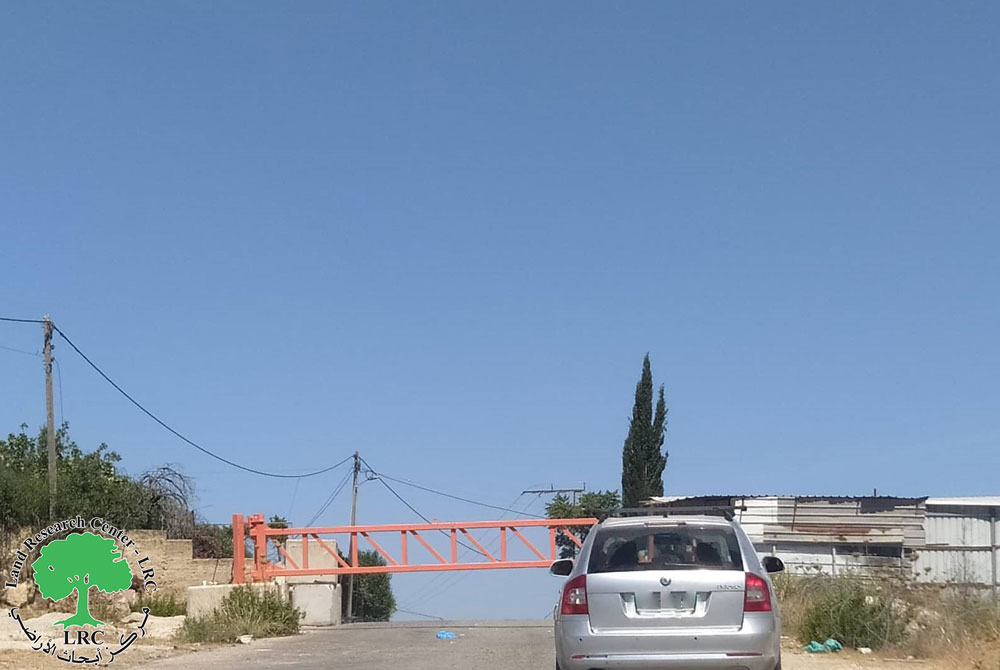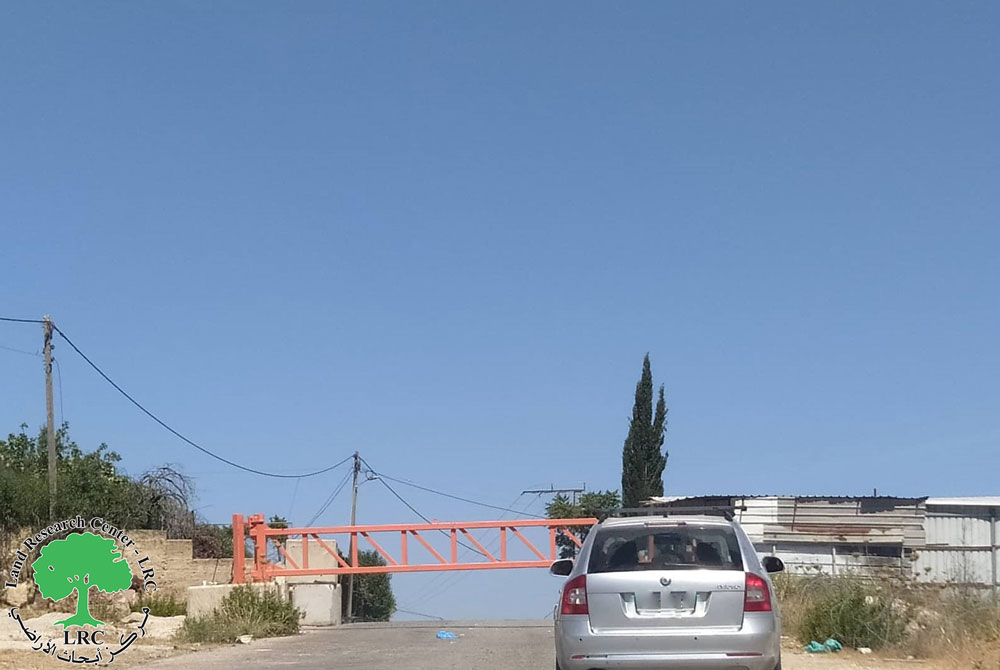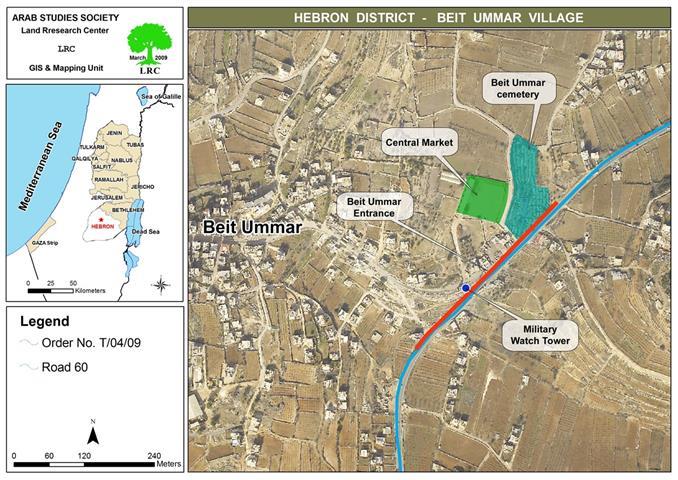Israeli occupation authorities issued a military order calling for the confiscation of a piece of land in the town of Beit Ummar north of the city of Hebron. The declared purpose stated in the order was to establish an isolation barrier that separates between the eastern neighborhoods of Beit Ummar and the main Hebron-Jerusalem Road (a.ka. By-Pass Road 60).
The military order, numbered T/04/09, indicated that the Israeli occupation forces place its hands of a piece of land in Parcel 2 of Beit Ummar lands for the purpose of erecting a barrier at a length of 295 meters. The Order did not specify the nature of this barrier. Yet, the Beit Ummar Municipality indicated that the intended barrier will be made of wired metal fence similar to the one established at the entrance of the town. See Military Order & Map
The military order was submitted directly to the head of the Beit Ummar Municipality, Mr. Nasri Sabarna, after he was summoned to the entrance of the town. The order was signed by the Commander of Israeli occupation forces in the West Bank, Jadi Shamni. The Municipality was quick to legally object to the Order and filed a complaint against the implementation of the Order in the relevant Israeli courts.
According to the Israeli military soldiers who submitted the order, the planned barrier will be established near the cemetery on the eastern entrance of the town and continues to run parallel to Road 60 until it reaches the southern side of the town covering a distance of 295 meters. However, in reality the barrier runs more than half a kilometer.
Photo 1 & Photo 2: A barrier set up by Israeli occupation forces near Beit Ummar in 2002
According to the map attached with the Order, the new barrier will be set up atop lands belonging to Al Alami clan. Some of the owners of the land include:
-
Mohammad Issa Naser
-
Oudeh Abdel Rahman
-
Zureiq Abdullah
-
Khalil Hasan Jaber
-
Abdel Hamid Jaber
It is worth pointing out that Israeli occupation forces have established in 2002 a military tower and an iron gate at the main entrance of the town in addition to the creation of fences on both sides of the entrance at a height of 15 meters for “security reasons”. Now, the occupation forces are rehabilitating the old fence and creating a new one at the town’s southern end.
Photo 3: the area where the new fence is supposed to be established.
Photo 4: An Israeli observation tower at the entrance of Beit Ummar.
Negative Effects of the New Barrier:
In case Israeli occupation forces manage to establish the new barrier at the entrance of Beit Ummar, this would mean the total control of the town’s traffic movement, leading to more trouble for its population. More specifically:
-
Entering and existing the town can be done only through one entry point, i.e. the main entrance. This means the deprivation of the freedom of entry and exit from other locations and limiting it to only one bottle neck.
-
The inability of land owners whose lands are situated near the By-Pass Road 60 from accessing their lands unless they go through the main gate. Additional time and effort will be needed to reach them.
-
Preventing school students from reaching their houses using secondary roads. This means that they would be forced to use the main gate which would endanger their lives as traffic congestion is the norm near the town’s main gate. Also, it would mean that they will get to school and home later than before.
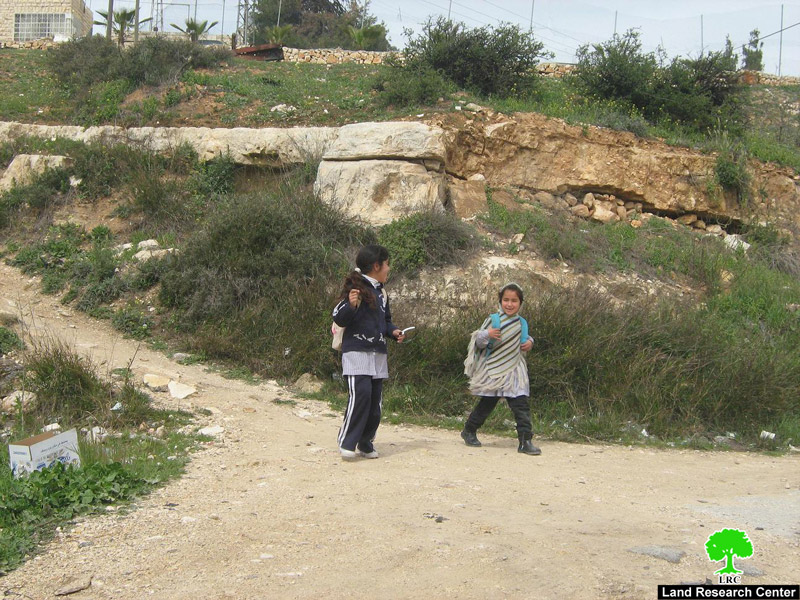
Photo 5: A Picture of Beit Ummar students using a secondary road to avoid
the traffic jam at Beit Ummar’s main entrance.
The tightening of the closure of Beit Ummar’s main vegetable market. Israeli occupation forces have closed in the past the main entrance of the market with cement blocks and prevented the entry of vegetable tractors into it to download their produce. This closure has transformed the market into a virtual ghost market. The proposed new closure will render the vegetable market totally inaccessible and, thus, totally unusable.
Photo 6: The closed vegetable market by the cement blocks of the wall
Photo 7: The cement blocks located at the entrance of the vegetable market.
Photo 8: The deserted vegetable market in Beit Ummar.
-
Preventing the owners of commercial shops located on the main road from accessing their customers which negatively and severely affects their livelihoods. The case of the 70-year old Mr. Khader Al Alami is a classical example of the affects of closures and barriers on the lives of ordinary Palestinians; Mr. Khader has a shop on the main road that he is currently renovating on the hope that it would improve his economic situation. However, when he knew about the upcoming barrier that will cross in front of his shop, he became puzzled whether or not to continue the renovation in light of the fact that less and less customers would be able to reach him.
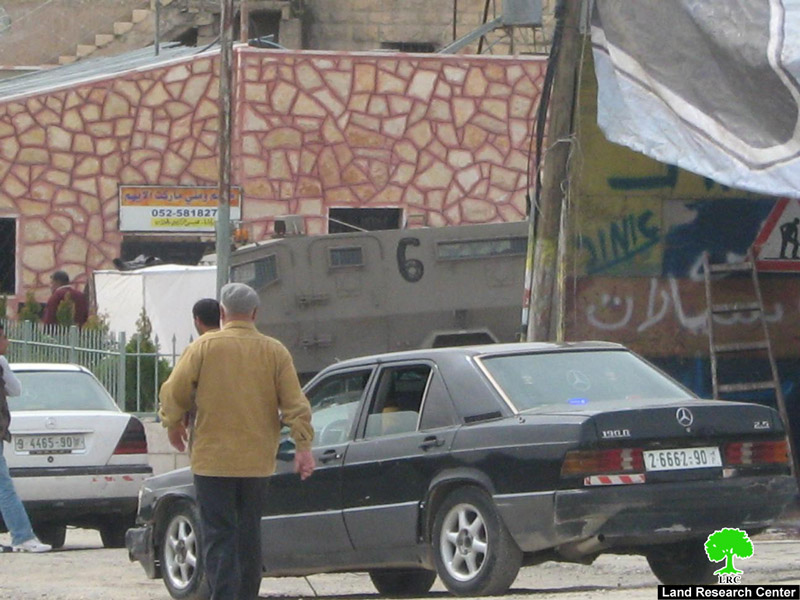
Pic.9: Mr. Khader Al Alami renovating his shop located on the main road in Beit Ummar.
-
The creation of massive traffic congestion as all traffic, vehicular and on-foot, will be directed towards only one access point. This would eventually lead to the delay of the access of humanitarian and sick cases to the needed medical facilities especially given the fact that all secondary roads have been blocked.
Unlimited Racism Under the Guise of Security:
As it’s been the case always, Israeli occupation forces use the excuse of security in all of its hostile activities against the occupied Palestinians, be it house demolition, tree uprooting or apprehension. An Israeli military tower is present at the entrance of Beit Ummar. Israeli patrol jeeps do not leave the entrance (see picture attached herewith). Israeli soldiers stop and search cars at will and in accordance with the mood of the soldiers. That is in addition to raiding the houses located on the main road. A number of serious injuries by soldier gunfire have also been reported. The afore-mentioned notes indicate that the area in which the barrier is planned is totally under the control of the occupation soldiers to do in it what they wish. It is the belief of LRC that the establishment of the barrier in that area is only an initial step to suffocate the town of Beit Ummar for the benefit of the colonists passing by it on daily basis.


